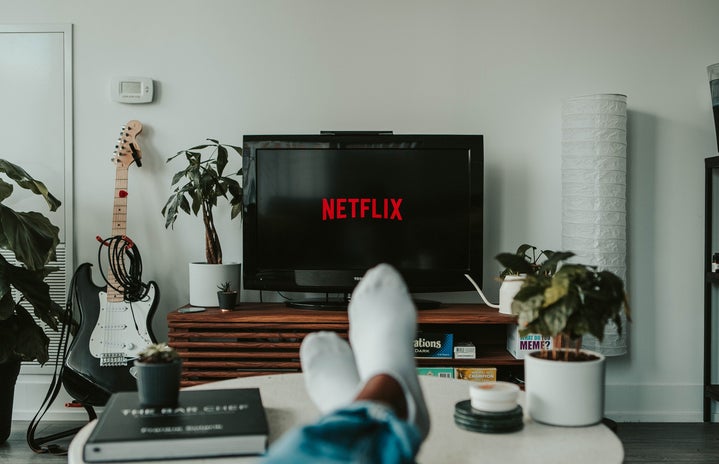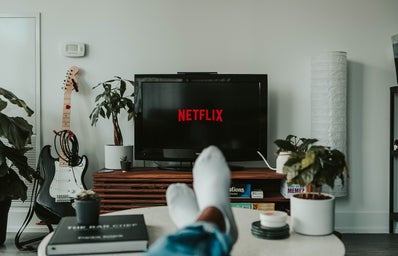It’s a Friday night and you’ve been anxiously waiting to find out what’s going to happen next on your favorite show.
15 years ago, there was no such thing as binge-watching. Television shows would air one episode a week, maybe two if the audience was lucky and there was a multi-part series finale. Viewers would have to patiently wait an entire week to figure out what was going to happen to their favorite characters.
Enter streaming services.
Now, consumers can start and finish a series in one sitting (if they’re that dedicated). Not only can they do this, but many choose to try and get through television series as quickly as possible–a practice known as “binge-watching.”
Originally coined by Netflix, binge-watching refers to the practice of watching several episodes of a show in one sitting—some taking it to the extreme of finishing entire seasons in one sitting.
“Streaming services have definitely enabled a culture of binge-watching content,” said Allison Bronander, 20. “It wasn’t possible to binge-watch something on TV before unless it was a scheduled marathon or you recorded a bunch of episodes.”
Streaming services like Netflix have given consumers entire show anthologies at the tips of their fingers, allowing them to seamlessly transition from episode to episode, without having to take the traditional break that cable requires.
For many consumers, the ability to watch television shows without having to wait an extensive amount of time for new episodes and seasons is something they appreciate.
“I don’t set out to binge-watch shows, but it usually ends up happening anyway,” said Gabriella Lucci, 23. “Once I start watching a show, it’s all I’ll be thinking about. Being able to have that option to keep watching without waiting is definitely beneficial.”
Though binge-watching is a route consumers often take, especially when it comes to anticipated series premiers, some prefer spacing out their viewing schedule.
“I don’t binge-watch shows often,” said Bronander. “I’ll watch them fairly quickly but it’s not usually more than one or two episodes a day.”
For consumers like Bronander, the speed of binge-watching can take away from the enjoyment of watching highly anticipated television shows.
“Sometimes I’ll be disappointed if I feel like I’m watching something too fast,” she said. “Especially because I know it’ll be a while before anything new comes out.”
Despite the convenience streaming services have provided consumers by giving them the ability to binge-watch television shows, this habit could have negative impacts that consumers may consider.
According to an article from The Washington Post, several studies have linked binge-watching to poor sleep quality, increased fatigue and sleep disorders.
“If other viewers are like me, I can definitely see how binge-watching would affect someone’s sleep schedule, ability to focus and increase their level of procrastination,” said Lucci.
In addition to affecting sleeping patterns, extensive screen-time associated with binge-watching is also linked to feelings of isolation and behavioral addiction.
As noted in an article on VeryWellHealth.com, researchers noted that binge-watching is an isolating habit, where consumers often watch television in solitude for an extended period of time.
Not only can the lack of socialization for long periods of time be linked to increased social isolation, and a negative impact on mental health—but, according to the article, binge-watching is even beginning to be categorized as a behavioral addiction.
“I definitely feel a lot of disappointment after I finish binging a show,” said Lucci. “Especially if it was one I was really anticipating and enjoying.”
This classification as a behavioral addiction means that consumers can become dependent and crave binge-watching which can lead to negative emotions when it’s taken away.
“I think for the most part I’d consider binge-watching to be a negative habit,” said Bronander. “We get used to instant gratification, so we become disappointed and it gets harder to wait for new seasons or shows to come out.”




